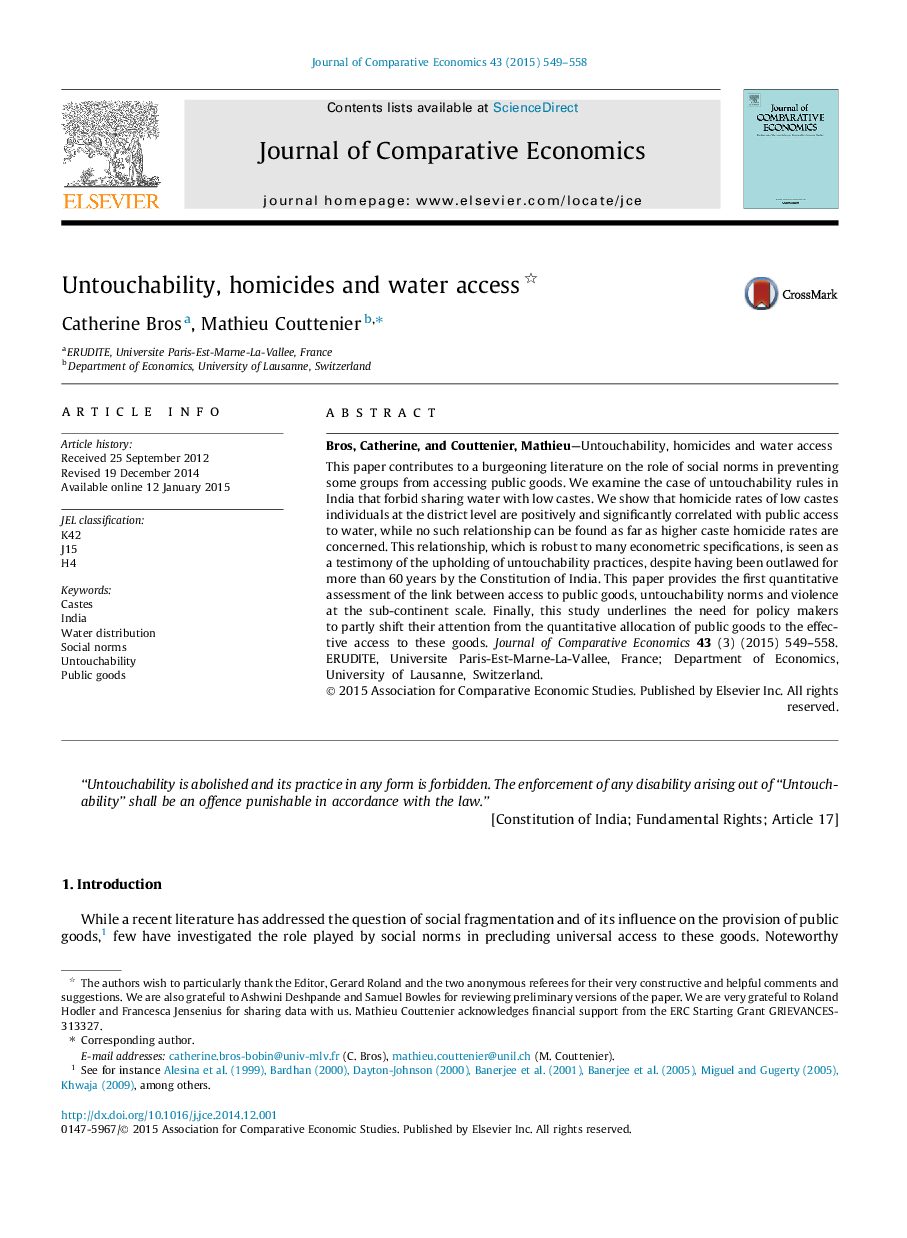| Article ID | Journal | Published Year | Pages | File Type |
|---|---|---|---|---|
| 5092062 | Journal of Comparative Economics | 2015 | 10 Pages |
â¢Murders against the ex-untouchables are related to the way water is distributed.â¢Evidence of the resilience of untouchability practices throughout India.â¢Social norms may exclude one group from effective public goods access.â¢Thereby stressing another effect of social fragmentation on public goods access.
This paper contributes to a burgeoning literature on the role of social norms in preventing some groups from accessing public goods. We examine the case of untouchability rules in India that forbid sharing water with low castes. We show that homicide rates of low castes individuals at the district level are positively and significantly correlated with public access to water, while no such relationship can be found as far as higher caste homicide rates are concerned. This relationship, which is robust to many econometric specifications, is seen as a testimony of the upholding of untouchability practices, despite having been outlawed for more than 60Â years by the Constitution of India. This paper provides the first quantitative assessment of the link between access to public goods, untouchability norms and violence at the sub-continent scale. Finally, this study underlines the need for policy makers to partly shift their attention from the quantitative allocation of public goods to the effective access to these goods.
